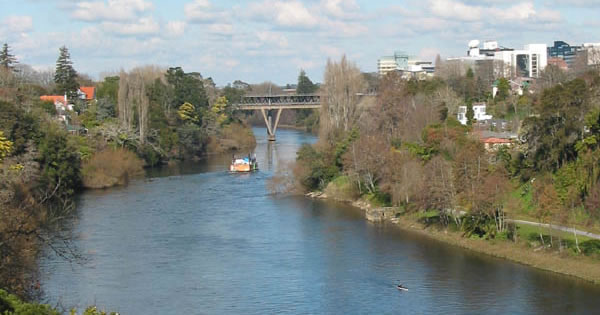On Saturday Nick Smith released the latest document in what has been a barrage of consultation from his Ministry for the Environment: this time on fresh water.
Predictably the reaction of the Opposition has been negative, saying the Government isn’t doing enough to protect our fresh water. However, they have overlooked a lot of good things this document contains. Nick Smith is proposing changes that make up for many of the glaring deficiencies left by Amy Adams’ last attempt to improve fresh water policy in 2014.
So today’s blog will reflect on that we should be grateful for in the latest plan, and tomorrow we will turn our minds to the problems that remain.
Keeping stock out of rivers
After all the publicity about livestock in our rivers and lakes over this summer, the Government couldn’t avoid taking action on this one. The public has realised that despite the work of the dairy industry there was no guarantee that stock were being kept out of our waterways. The rules differed across regions, and even when rules were broken there was rarely any consequence. Nick Smith has addressed this.
In the lead up to the last election the Government confirmed that dairy cattle would be excluded from streams and lakes by mid next year, although this was after voluntary action by the industry meant that 95% of eligible waterways were already fenced. Of course that left other farms – such as dairy support farms (where cows are grazed but not milked), pig, deer and beef farms. The new announcement means that – depending on the steepness of the land – between 2025 and 2030 stock will have to be kept out of waterways or farmers will face a fine.
It actually wasn’t so hard to make this change; Mr Smith has simply implemented the recommendation of the Land and Water Forum report from last year. The beef industry in particular saw the writing on the wall and agreed to these changes.
We can all argue that 2030 is not fast enough, as we can that temporary streams or streams less than 1m across and 30cm deep are excluded. We will look at this second issue in more detail tomorrow.
Maintain or improve
While the exclusion of livestock will get a lot of coverage, the most significant progress from Nick Smith’s announcement without doubt is clarification of the meaning of “maintain or improve”. The obfuscation around this was one of the Morgan Foundation’s key criticisms of Amy Adams’ 2014 fresh water policy.
It sounds pretty technical, but in the past Regional Councils were told to maintain or improve water quality “across their region”. Even the scientists didn’t know what this meant – if a big river gets worse and a little stream improves does that mean the region has improved overall?
The new statement attempts to clarify that by saying that every catchment in the country has to be maintained or improved. This is a lot more simple and measurable. The job of Regional Councils is now clear; to improve all our fresh water, or at least not let it get measurably worse.
The implications are huge. It means that Regional Councils cannot allow intensification of farming in a catchment – which will damage water quality – until they ensure that improvements are made elsewhere in that same catchment to improve water quality. For example if this had been clear 8 years ago, Waikato Regional Council could never have approved Landcorp’s massive conversion of forestry to dairy land near Taupo.
Including Macroinvertebrate Community Index as a measure
Another of our key critiques of the Government’s 2014 fresh water policy was that it excluded a key measure of fresh water health. The Macroinvertebrate Community Index (MCI) measures the variety of bugs in a river. This may sound a bit creepy crawly but it tells us whether the water is fit for living in, swimming in and gathering kai from.
Including the MCI in our fresh water policy as a key performance indicator is a big step forward. In fact we should go further, it should be the primary measure of whether a waterway is actually improving or getting worse.
Iwi involvement in decision making
Whether Winston likes it or not, Article 2 of the Treaty of Waitangi is pretty clear on this one. Maori have rights over their ‘taonga’ and it is pretty difficult to argue that fresh water doesn’t come under that heading. While the Government is sticking to the line that fresh water doesn’t belong to anyone, it is clear under our Treaty responsibilities that both treaty partners – Crown and Maori – have to be involved in the governance of fresh water.
Water Charges
Finally the Government has admitted that water users should pay. It is a small start – the charges are only to recover the costs of monitoring, enforcing and researching the fresh water in their region. If this is taken up by Regional Councils it will be a large leap forward – all that remains is to expand the idea of user pays to cover clean up costs also.
In short, there are a lot of positives in this proposed fresh water policy. Some will take a long time to implement, but the direction of travel is right and the Government needs to be congratulated on that basis. There are a few fish hooks too – we will look at these tomorrow.

